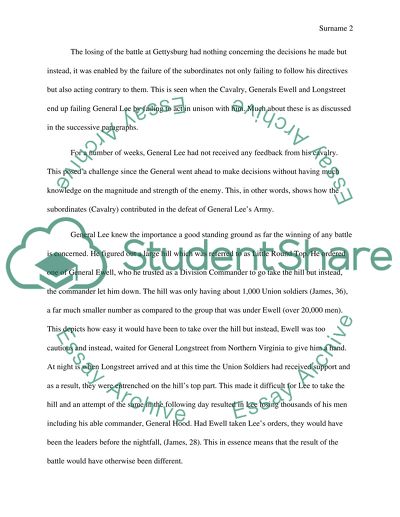Cite this document
(“Did Robert E. Lee make the correct decisions at Gettysburg or could he Essay”, n.d.)
Retrieved from https://studentshare.org/history/1632299-did-robert-e-lee-make-the-correct-decisions-at-gettysburg-or-could-he-have-employed-a-different-strategy
Retrieved from https://studentshare.org/history/1632299-did-robert-e-lee-make-the-correct-decisions-at-gettysburg-or-could-he-have-employed-a-different-strategy
(Did Robert E. Lee Make the Correct Decisions at Gettysburg or Could He Essay)
https://studentshare.org/history/1632299-did-robert-e-lee-make-the-correct-decisions-at-gettysburg-or-could-he-have-employed-a-different-strategy.
https://studentshare.org/history/1632299-did-robert-e-lee-make-the-correct-decisions-at-gettysburg-or-could-he-have-employed-a-different-strategy.
“Did Robert E. Lee Make the Correct Decisions at Gettysburg or Could He Essay”, n.d. https://studentshare.org/history/1632299-did-robert-e-lee-make-the-correct-decisions-at-gettysburg-or-could-he-have-employed-a-different-strategy.


